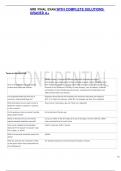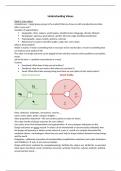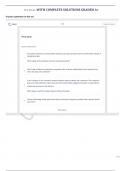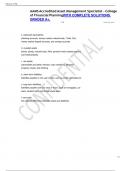01.10.2024
Analyze the information in the class summary. What are your learners’ strengths and weaknesses?
Note: Cover all learners. (max. 100 words)
Upon reviewing the class summary, it's clear that each student has different strengths and areas they need to work on. Ana excels in reading and writing but needs
improvement in listening and speaking, Bilal is doing well overall but should also focus on improving his speaking skills. Chen is strong in reading but needs to work on both
his listening and speaking skills. Delphine and Francesca exhibit lower scores across all skills, indicating a need for overall language skill improvement. Mihai excels in
reading but lacks in listening, writing, and speaking. The students clearly demonstrate a significant strength in their reading skills, with most of them attaining a band score of
7.0. However, the listening, writing and speaking skills are definitely the weaker points, with the average band score for writing at 5.8, while both listening and speaking
average at 5.75. This underscores the need for focused improvement in these areas, practicing these weaker skills will contribute to achieving desired IELTS bands for all
students.
Which two skills have you chosen to teach in this lesson? Why?
Note: State which part of the exam you will focus on for each skill, e.g., Speaking Part 1. (minimum 150 words)
For this lesson, I've decided to concentrate on speaking and listening, two skills that most of the students are struggling with. These skills hold paramount importance for
effective communication, both in academic settings and real-life contexts.
For Speaking, the focus will be on Part 2, this section requires students to articulate well-structured and fluent responses to a given topic for approximately 2 minutes
without interruption. This practice will involve honing pronunciation, intonation, and vocabulary use. The aim is to help students efficiently organize their thoughts within the
allotted time and deliver compelling speeches.
For the Listening skill, the focus will be on Section 4, which involves a lecture on an academic or work-related topic. In this lesson, the lecture pertains to a subject on work,
following the format of the IELTS Listening section. Section 4 is widely acknowledged as the most challenging part of the listening test, demanding students to answer two
sets of questions after a single playback of the recording. Typically, this involves filling out a form followed by addressing five multiple-choice questions. Practicing this
section is crucial, as it will expose students to diverse accents and familiarize them with the question types.
By tailoring the lesson to address these specific areas and meet the unique needs of the class, our objective is to instill confidence and competence in both Speaking and
Listening. This tailored approach aims to establish a well-rounded foundation for success in the IELTS exam and beyond. Through targeted practice, students can confront
challenges, elevating their overall language proficiency. Balancing performance across all four skills is crucial, as the IELTS final grade considers a combination of band
,grades in each skill. This strategic approach maximizes the likelihood of achieving success in the IELTS examination and contributes to comprehensive language proficiency.
Which lesson topic have you chosen? Why? (minimum 100 words)
Considering the students' shared aspirations and the practical applicability of the lesson content, I have chosen the topic of "work" as the focal point for the lesson. This
decision stems from the fact that a majority, precisely 3 out of 6 students, express a desire to work in English-speaking countries. This theme proves highly relevant to their
immediate and long-term goals, as their motivation for taking the IELTS exam is primarily rooted in securing employment opportunities in different English-speaking
countries. The significance of the "work" theme extends beyond these specific students to the entire class, as even those with aspirations for further education and relocation
acknowledge the pivotal role work plays in these pursuits. Whether it is pursuing a career in their field of study or sustaining themselves while living in a new country, the
overarching theme of "work" unifies the diverse goals and interests within the classroom, emphasizing its pertinence not only in the IELTS exam but also in their future
endeavors. The listening audio material chosen is directly relevant to the work theme, focusing on practical aspects such as managing conflict at work, providing a relevant
context for learning. By focusing on work-related language and skills, including professional communication, the lesson aims to cultivate practical and applicable language
proficiency. This approach not only caters to their current needs but also equips them with valuable tools for success in their chosen careers. The "work" theme offers a
cohesive and tailored framework that resonates with the diverse objectives of the students, creating a meaningful and engaging learning experience.
Lesson Aims: Lesson Outcomes:
By the end of the lesson, students will be better able to… By the end of the lesson, students will have…
Understand and effectively use work-related vocabulary with Broadened their vocabulary pertinent to work-related topics, enabling active
confidence. participation in meaningful conversations on related subjects.
Demonstrate improved listening skills by effectively extracting relevant Improved their listening skills and enhanced their ability to grasp and synthesize
information from listening materials. information from diverse audio materials.
Communicate effectively by demonstrating improved proficiency in Practiced and refined their speaking skills through engaging discussions centered
articulating well-structured and fluent responses. around personal experiences and perspectives related to work.
Showcase their readiness and capability for the IELTS exam. Exhibited increased overall preparedness for the IELTS exam.
, Anticipated difficulties: Suggested solutions:
(Include at least three points covering: students’ L1, the tasks,
1. Implement clear language expectations to help navigate the challenge posed by
classroom management, any other relevant points) the different L1 backgrounds, reducing the likelihood of confusion and enhancing
communication. Recognize and embrace linguistic diversity by fostering a
L1 (Diverse Nationalities): supportive atmosphere, encouraging peer collaboration, and providing resources
Each of the six students has a distinct native language, and this may in English. Offer additional support for students facing specific language
also lead to confusion among students and can disrupt comprehension challenges, ensuring that individualized needs are addressed to promote effective
and communication. learning.
This linguistic diversity introduces complexities to the learning
process, as each student presents a unique set of linguistic challenges
and tendencies that may require individualized attention. 2. Tailor tasks to accommodate diverse proficiency levels and learning styles,
ensuring that each student is appropriately challenged. Recognize and address
The Tasks individual strengths and weaknesses by providing additional support where
The speaking and listening tasks may vary in complexity, potentially needed, fostering a more inclusive learning environment. Implement ongoing
creating a mismatch with the diverse proficiency levels and learning assessments to gauge student progress and adjust task complexity, ensuring a
styles of the six students. This variation could pose challenges, with more dynamic and responsive learning experience. Adopt a flexible approach to
some students struggling with specific formats or question types. Given instruction, allowing for adaptations based on individual needs and ensuring that
that each student has unique strengths and weaknesses, adopting a each student feels appropriately challenged and engaged.
uniform approach to tasks might lead to certain individuals feeling either
overwhelmed or underchallenged. This lack of task flexibility may result 3. Set expectations for class discussions, emphasizing the importance of respectful
in uneven participation and engagement levels among the students. communication, and staying on topic. Introduce structured discussion formats that
allow for diverse opinions while maintaining focus. This can include designated
speaking turns, guiding questions, or moderation techniques to ensure a
Classroom Management constructive dialogue. Actively facilitate discussions, intervening when necessary
Maintaining an interactive and focused classroom environment during to redirect conversations back to the lesson objectives. This helps in maintaining a
speaking activities, especially on a topic like work, can be challenging. balanced and purposeful classroom environment. Implement engaging activities
Discussions on work-related subjects may evoke diverse opinions and and methodologies that clear capture students' interest, minimizing the likelihood
experiences, potentially sparking debates, or disruptions within the of off-topic conversations.
classroom.
Engaging students in discussions and collaborative activities, such as
pairs or groups, may inadvertently result in distractions or off-topic 4. Promoting a culturally sensitive and inclusive learning environment is essential.
conversations. This has the potential to impede the effectiveness of the Providing guidance on cross-cultural communication, encouraging open-
lesson and hinder the achievement of specific learning objectives. mindedness, and fostering a classroom culture that respects diverse perspectives
can help mitigate potential cultural sensitivities. Additionally, incorporating topics





